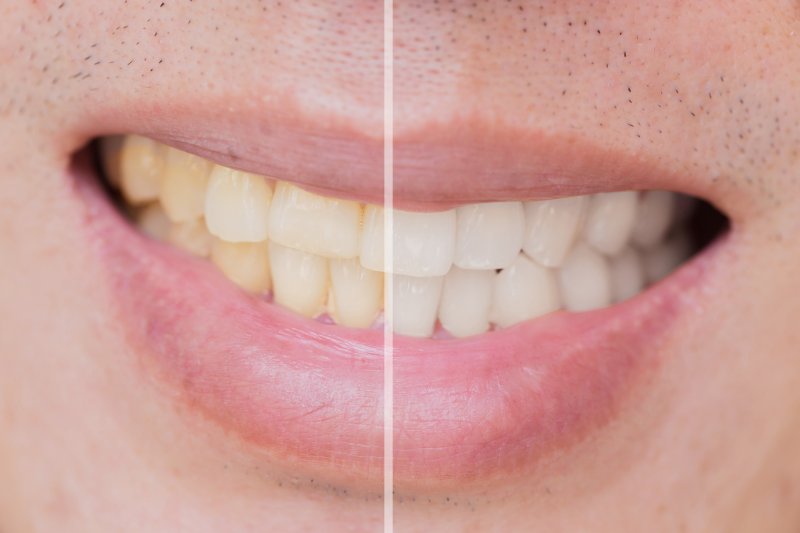
There are many traits that can be passed down from your parents, including hair, eyes, and other facial features. However, certain dental conditions can also be passed down, and that includes problems related to the appearance of your teeth. If you’ve always lived with stained teeth, even if you’ve never had cavities or other dental concerns, it’s possible that you have a genetic condition that puts you at greater risk of tooth discoloration. The good news is there are options available to you to make your smile brighter and free of stains. Keep reading to learn about the genetic connection and how you can manage stained teeth once and for all.
Genetic Conditions That Cause Discoloration
As it turns out, there are two genetic conditions known for causing inherent staining in teeth. This includes dentinogenesis imperfecta and amelogenesis imperfecta.
Dentinogenesis imperfecta causes gray stains in teeth and makes them not only appear discolored, but transparent, weak, and brittle. It can affect both permanent teeth as well as baby teeth.
Alternatively, amelogenesis imperfect leads to yellow-brown stains as well as soft, fragile enamel. The condition can even lead to pitting and grooving, increasing the risk of decay, chipping, cracking, and fracture of teeth.
Keep in mind that you don’t necessarily need to have these specific conditions in order to have a genetic predisposition for stained teeth. If you have family members who have struggled with stained teeth, it’s common for their children to have similar issues as well.
External Factors That Affect Tooth Color
While genetic conditions tend to be intrinsic (i.e. stains that affect the dentin, which sits underneath the enamel), oral care habits and diet tend to be more extrinsic (or affect the outer layers of enamel).
One of the most common reasons for stained teeth is poor oral hygiene. Failing to brush twice a day and floss at least once a day can lead to stains collecting on teeth. If you consume large amounts of richly pigmented foods and beverages, such as coffee, dark tea, juice, red sauces, or other similar items, your teeth can be even more prone to stains.
How You Can Start Removing Stains
Many who have struggled with dental stains find over-the-counter whitening products to be ineffective or disappointing, which is where professional whitening solutions come in. Professional-grade whitening products offer much higher concentrations of bleaching agents as well as more uniform whitening methods. Of course, even if teeth whitening doesn’t help you achieve the results you want, direct bonding and veneers can help you achieve a brighter smile too.
The best way to learn which cosmetic treatment can help achieve your smile goals is to speak with a cosmetic dentist in person. Call one today and start planning your next smile makeover!
About The Center for Advanced Dentistry
Dr. Hornstein and Dr. Schlessel offer a variety of cosmetic dental treatments specifically designed to restore teeth, remove stains, and cover imperfections. Whatever treatment you decide, you can expect your smile makeover to be fully personalized to your needs from start-to-finish. To schedule an appointment or learn more about cosmetic dentistry, you can contact them through their website.
